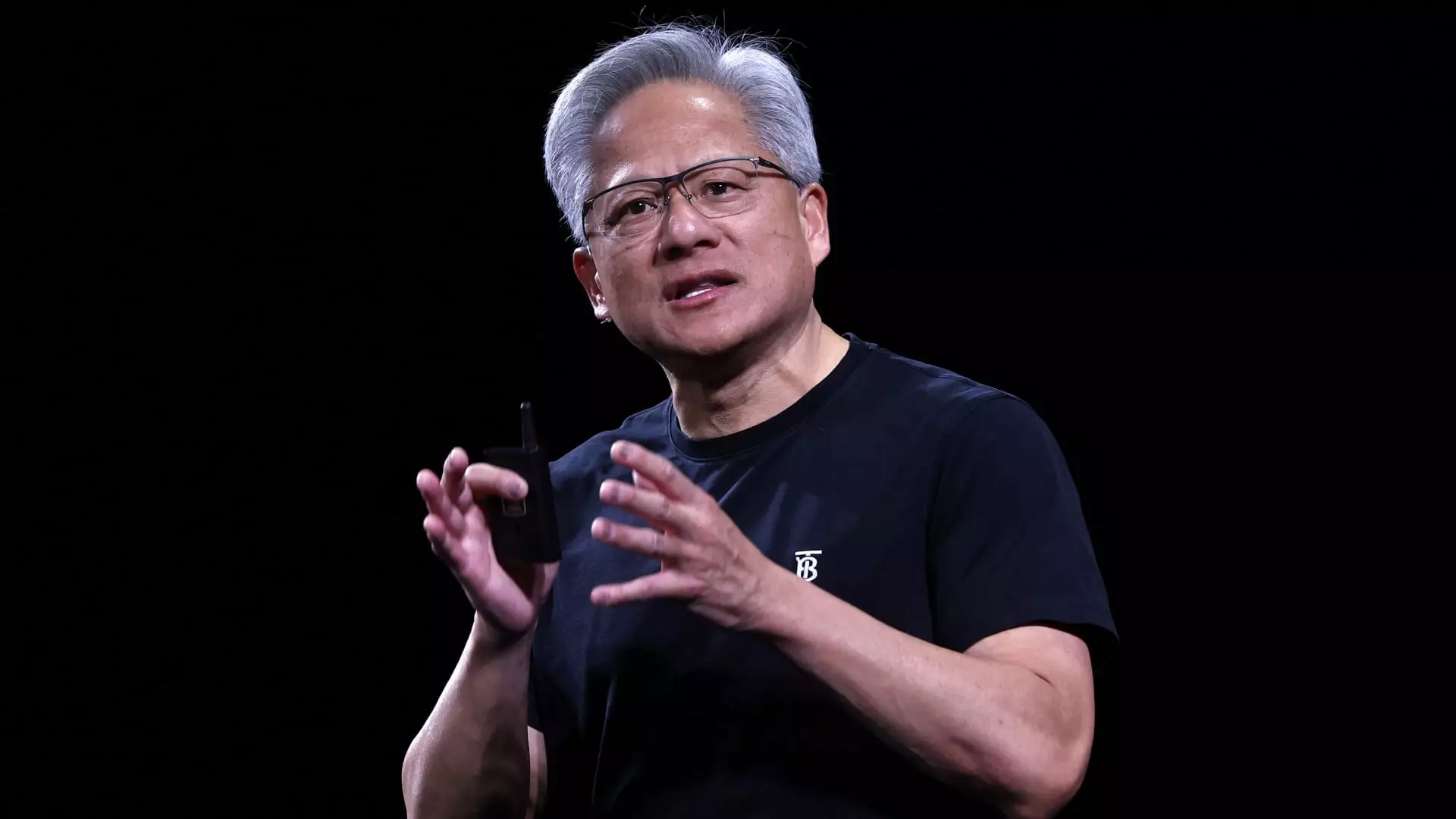This week, the tech world witnessed a distinctive resurgence of palpable excitement as Jensen Huang, the CEO of Nvidia, made his much-anticipated tour across Europe. His presence created an electric atmosphere reminiscent of the thrills usually reserved for rock concerts, leaving many in awe of his vision for artificial intelligence (AI) as a critical infrastructure for the continent. This was not just another tech conference; it was a powerful declaration of Nvidia’s capabilities and ambitions, stirring both optimism and urgency among policymakers and industry leaders alike.
During his travels, Huang engaged with key figures—ranging from U.K. Prime Minister Keir Starmer to French President Emmanuel Macron—demonstrating not just the company’s influence but also the strategic importance of AI in shaping Europe’s future. Such meetings, accompanied by a packed audience and enthusiastic media coverage, highlighted Huang’s status as a rockstar of the tech realm. His ability to rally crowds and attract attention was amplified at events like the recent GTC in Paris, where not only was the venue at full capacity, but merchandise like “GTC Paris” T-shirts flew off the shelves, creating a buzz that extended beyond the walls of the conference.
Nvidia as an Infrastructure Powerhouse
Huang is not merely redefining Nvidia’s identity as a chip manufacturer; he is presenting it as a vital infrastructure provider essential for Europe’s technological sovereignty. This new narrative positions AI on par with electricity, suggesting that just as societies rely on stable electrical grids, they will also need a robust AI infrastructure to thrive in the digital age. By asserting that Europe needs to unite to build a shared capacity in AI, Huang is effectively challenging the continent to take bold steps toward self-determination. His vision resonates deeply in a political landscape that watches closely for any signs of dependency on external entities, especially in technology.
One of the most striking revelations during Huang’s tour was the announcement of an exciting partnership between Nvidia and the French startup, Mistral. Collaborations like these signal a potent shift; they not only show Nvidia’s commitment to aiding local startups but also underscore the importance of developing sovereign AI capabilities tailored to the continent’s unique needs. Huang’s emphasis on “sovereign AI” is a clarion call to European nations: it’s time to build data centers within national borders, creating systems that serve localized populations rather than relying on overseas servers.
The Chinese Challenge: A Wake-Up Call for the West
A significant thread woven through Huang’s narrative concerns the burgeoning competition from China, particularly directed at prominent tech players like Huawei. In an environment characterized by geopolitical tensions and stringent export controls, Huang articulated a sobering reality for U.S. tech companies—the absence of access to the Chinese market may herald unintended consequences for the American tech landscape. His remarks illuminate the possibility that countries, in a quest for technological independence, could gravitate toward Chinese alternatives, potentially skewing the global AI race.
Huang candidly acknowledged that while Huawei may be a generation behind Nvidia’s current offerings, the company is relentlessly innovating. His concern is palpable: if the U.S. tech stack remains insular, it risks ceding ground to international competitors who are more than willing to fill the void. The urgency embedded in this warning hints that America’s leadership in AI could falter if it doesn’t reconsider its approach to international collaboration and market access.
The Future is Now: Robotics and Quantum Computing
Huang’s forward-thinking perspective is underscored by his confident predictions regarding the next era of technological advancement. He has declared this decade the “decade of autonomous vehicles and robotics,” where Nvidia’s innovations will act as engines of transformation. This assertion isn’t mere optimism; it reflects a structured vision for how AI can integrate into aspects of daily life in ways previously unimagined.
Moreover, he boldly spoke about the impending “inflection point” in quantum computing, suggesting that we are on the brink of breakthroughs in solving complex problems that classical computers struggle with. The implications of such advancements are staggering—ranging from revolutionizing pharmaceutical development to combating climate change through advanced material discovery.
As Huang roams Europe, he does not just share Nvidia’s story; he invites European leaders to reshape their narratives around AI and technology. His campaign is not without its challenges, especially amid rising international rivalries, yet his audacious spirit and persuasive vision resonate deeply. In an age where technology pervades every aspect of life, Nvidia stands ready to lead Europe into an AI-powered future, encouraging nations to forge their paths rooted in technological independence and collaborative innovation.

